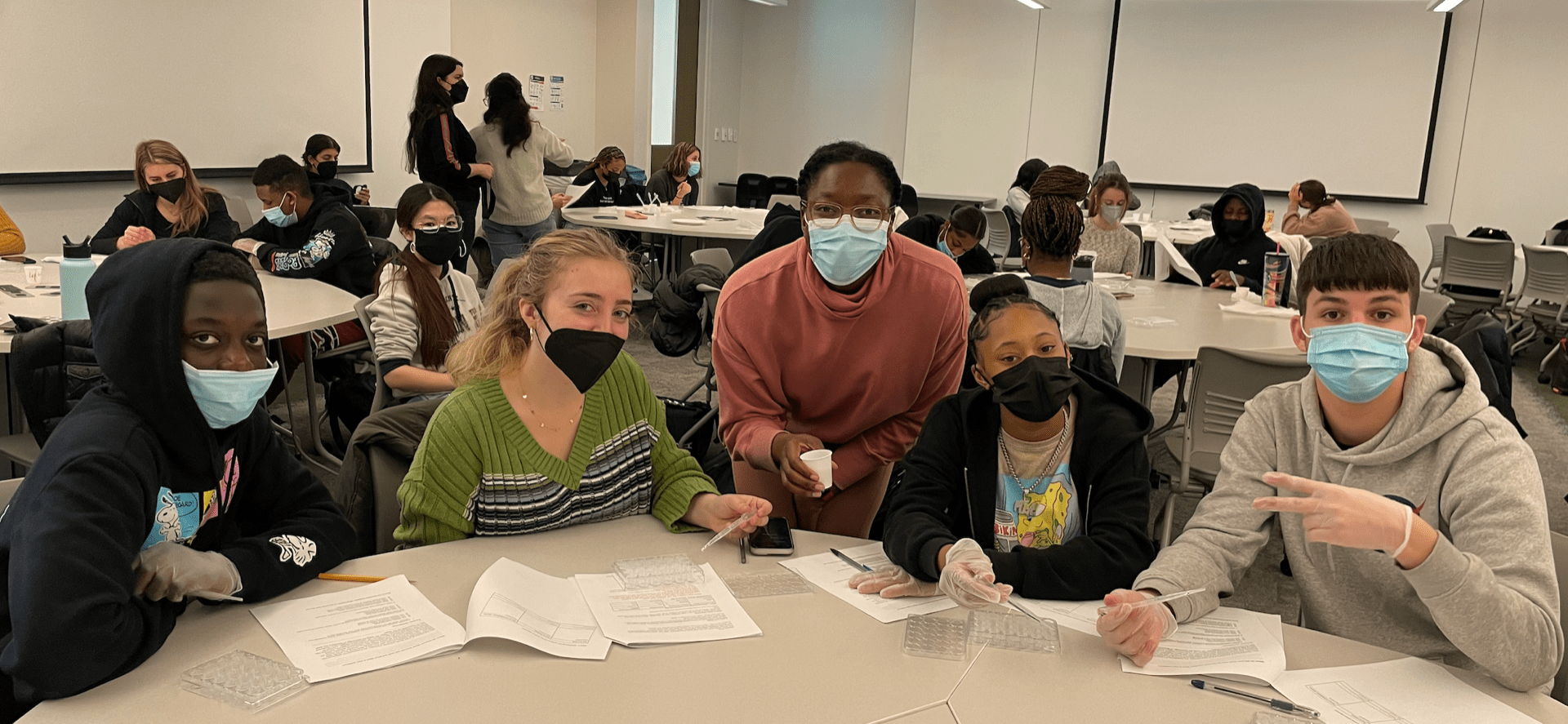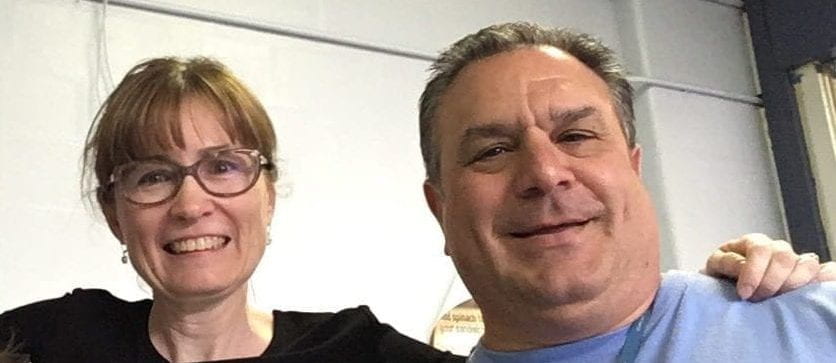Principal Investigator

Lori Flanagan-Cato is an Associate Professor in Psychology, co-Director of the Undergraduate Neuroscience Program, and Director of the graduation certificate in Community-Engaged STEM at Penn. She received her B.A. (Psychology) from Rutgers College, her Ph.D. (Neuroscience) from the University of Pittsburgh, and her M.Ed. (Education Policy) from the University of Pennsylvania. Dr. Flanagan-Cato created the academically based community service course (ABCS) Everyday Neuroscience in 2016, and it has been offered every year since. She works closely with teachers at the partner high school to ensure that Everyday Neuroscience provides a meaningful enrichment to their science curriculum.
In 2023, she began a new graduate ABCS course called Biomedical Research in the Urban Curriculum, which provides STEM-focused community engagement experience for graduate students in basic science and biomedical research. This course supports Penn’s graduate certificate in Community-Engaged STEM. In Fall 2024 she is launching an additional ABCS course called Everyday Psychology, which will partner with a local middle school to offer basic lessons in psychology. The partnership with the middle school teachers and counselors has allowed a curriculum to be co-created to share relevant and accessible knowledge with middle schoolers, while giving Penn students real-world research experience.
Current Team

Erin Purvis (Penn PhD ’24) earned her PhD in the Neuroscience Graduate Group (NGG at Penn’s Perelman School of Medicine). Erin conducted her dissertation research in Dr. D. Kacy Cullen’s lab to engineer a new treatment strategy for traumatic brain injury. She has been a member of the Everyday Neuroscience team since Fall 2021.
Erin was awarded a 2022-2024 Provost’s Graduate Academic Engagement Fellowship to create a formalized academic program for graduate students in the Perelman School of Medicine to get involved in community engagement in West Philadelphia. In Spring 2023, Erin and Professor Flanagan-Cato co-taught a new ABCS course for graduate students (Biomedical Research in the Urban Curriculum) in which they facilitate hands-on lessons with local high school students, develop science education policy proposals, and engage in critical discussions on the (dis)connection between the local community and Penn’s academic research. Erin and Professor Flanagan-Cato, together with colleagues across Penn’s campus, created a new Community-Engaged STEM certificate for graduate students. In 2023, Erin was the recipient of the Society for Neuroscience Next Generation Award based on this work. She will soon be starting as a Civics Engagement Fellow at UC Irvine
https://dana.org/article/formalizing-community-engagement-training/
Makayla Clark (Penn ’25) is a senior at the University of Pennsylvania, majoring in Neuroscience with a minor in Chemistry. As a premed student, she is conducting an honors thesis on mechanisms that drive reductions in intergroup bias through Penn ABCS courses. Makayla is a member of the Johnson Scholars Program at Penn and a Teaching Assistant for Organic Chemistry. Additionally, she gained research experience at the Laboratory for Structural, Physiologic and Functional Imaging, where she studied the correlation between various diseases and bone health. Outside of academics, she helps residents with dementia at a local nursing home engage in brain exercise activities to improve/maintain their cognitive abilities. She also volunteers at the HMS School for Children with Cerebral Palsy, aiding students in occupational therapy.
Previous Penn students
Kayleigh Mooney (Penn ’25) is a psychology major and a sociology minor She contributed to our work through the Penn Undergraduate Research Mentorship program and an independent research project.
Sarah Hatch (Penn GSE ’23) participated in the Provost’s Graduate Community-Engaged Research Mentorship program. She collaborated with Dr. Flanagan-Cato to create a theory of change and logic model for the course. She is now a PhD student at Harvard.
Ryan Afreen (Penn ’23) conducted a Neuroscience honors thesis to examine the possible changes in language use as Penn students and Robeson students became acquainted. She now attends Mount Sinai Medical School.
Yunshi Luo (Penn GSE ’23) supported our work with various data analysis projects. She is now a special education instructor in California.
Harrison Fellheimer (Penn ’22) conducted a Neuroscience honors thesis to study the possible effects of spatial reasoning games on cognitive function. He now attends Thomas Jefferson Medical School.
Theodor Lenz (Penn ’22) conducted a Neuroscience honors thesis to study the possible connection between neuroendocrine changes and social perception. He now attends Penn’s Perelman School of Medicine.
Sneha Sharma (Penn ’22) conducted an honors thesis in Philosophy, Politics and Economics, studying the role of academic motivation in educational acceleration.
Raul Vila (Penn ’22) conducted an independent study in Neuroscience, studying the role of emotional well-being in educational acceleration. He now works for a healthcare consulting group.
Violet Tu (Penn ’21), a biophysics and neuroscience double major, analyzed possible effects of our Robeson partnership on social perceptions. She is now an MD/PhD student at Duke.
Christina Steele (Penn ’20) completed an award-winning Psychology Honors Thesis in the laboratory of Dr. Adrianna Jenkins entitled “A Real-World Study of the Contact Hypothesis: Intergroup Contact in Academic-Based Service Learning.” Christina is now a PhD student at Harvard.
Peter Nwaoba (Penn ’19) completed an independent study project entitled “Does an ABCS neuroscience outreach program improve high school achievement?” Peter completed his MBA at the University of Virginia, and now works in the healthcare technology sector .


